Chapels within the context of great churches
Slide 1: Cluny III, begun 1088
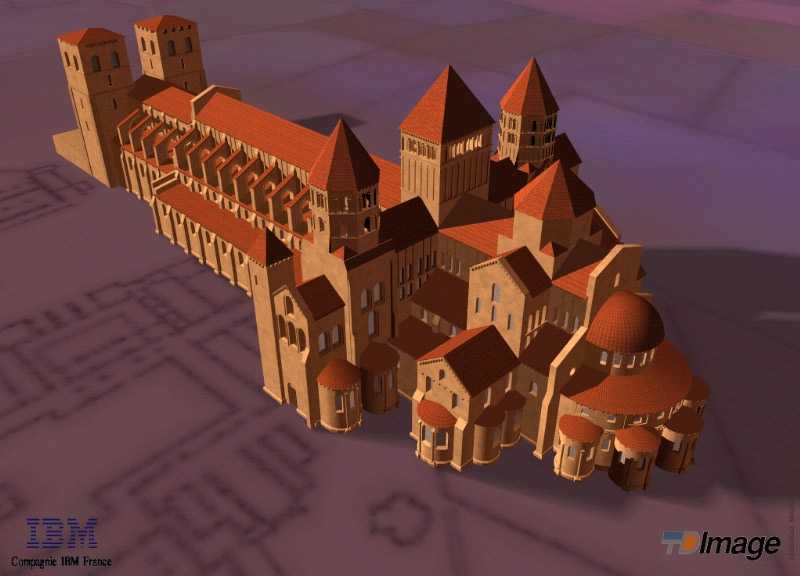
Slide 2: St-Denis, begun 1137 for Abbot Suger
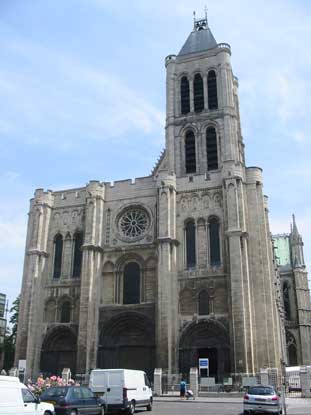
Slide 3: Paris, Notre-Dame, begun 1163
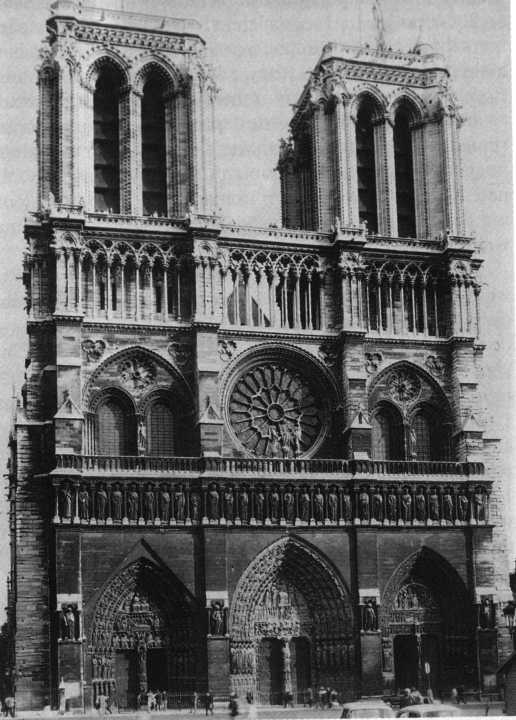
Slide 4: Paris, Notre-Dame, nave chapels
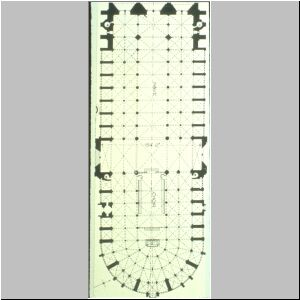
Slide 5: Paris, Notre-Dame, choir chapels
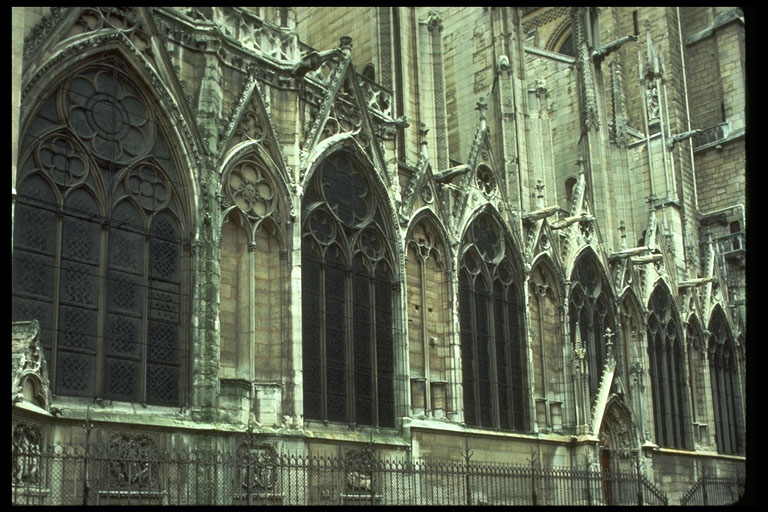
Nave chapels from 1220s, transept facades from c. 1245, choir chapels given by upper echelons of court and Paris burghers from 1290s
Slide 6: Amiens Cathedral, begun 1220
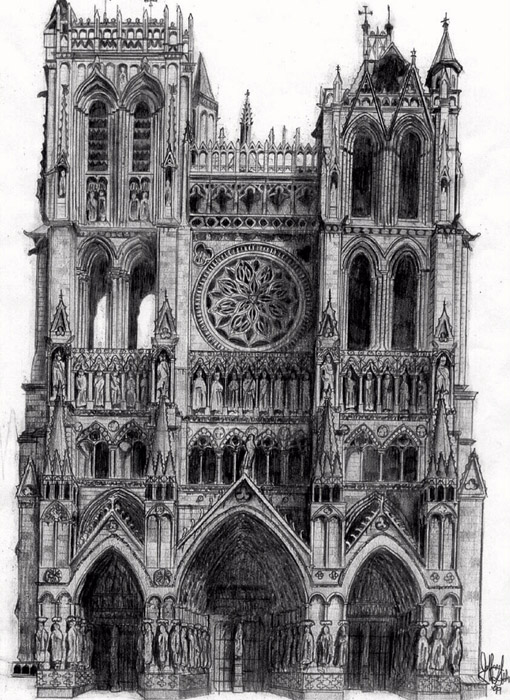
Slide 7: Amiens Cathedral, la Grange Chapel
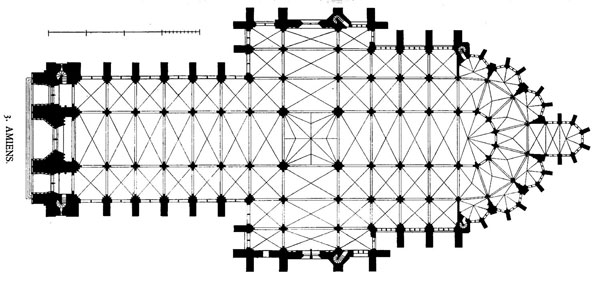
Tomb de la Grange chapels added c. 1375, with exterior religious/dynastic/courtly imagery
Slide 8: Florence, Sta Maria Novella
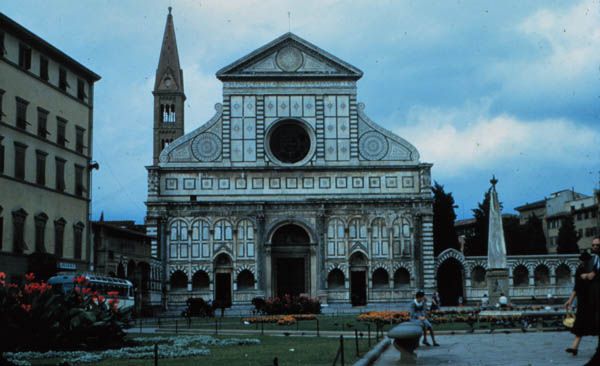
Slide 9: Florence, S. Croce
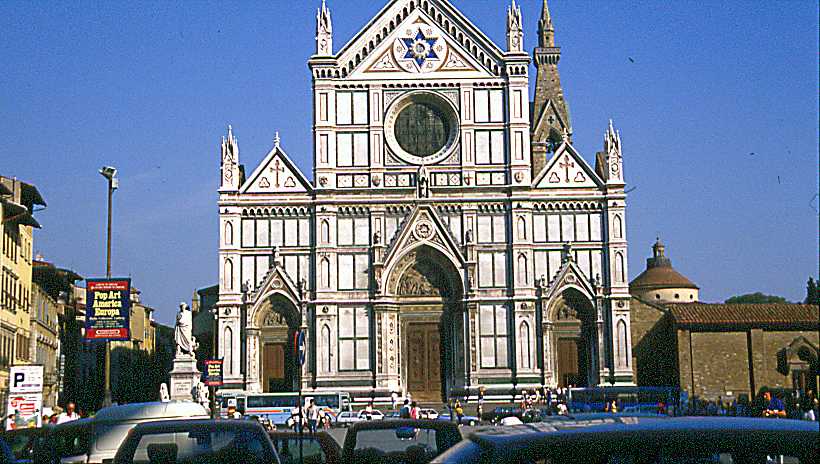
Slide 10: Florence, S. Croce, Bardi Chapel
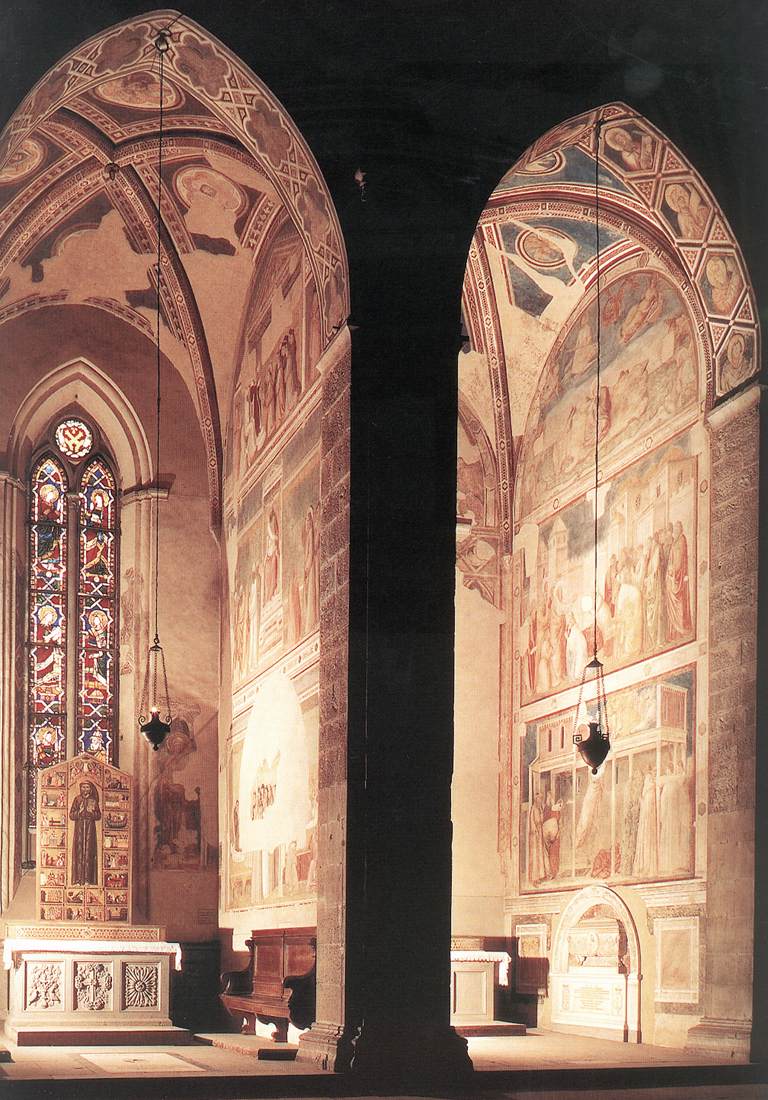
Bardi Chapel, Giotto Life of St Francis
Slide 11: Florence, S. Croce, Peruzzi Chapel
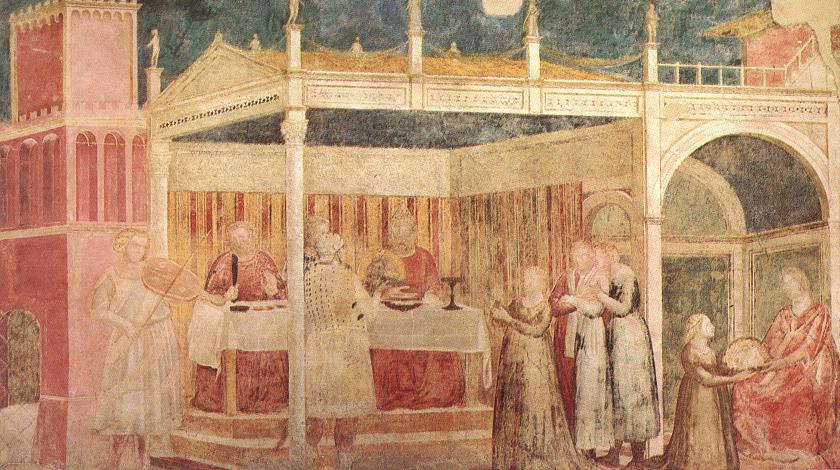
1320, Giotto di Bondone, fresco, 280 x 450 cm, Peruzzi Chapel, Santa Croce, Florence
Scenes from the Life of St John the Baptist: 3. Feast of Herod. This is a double scene. The larger part represents the dance of Salome before Herod, and the accompanying man playing on a musical instrument, while on the right the head of St John is handed over to her. The fresco is strongly faded, however, the whole composition can be seen.
Slide 12: Florence, S. Croce, Baroncelli Chapel
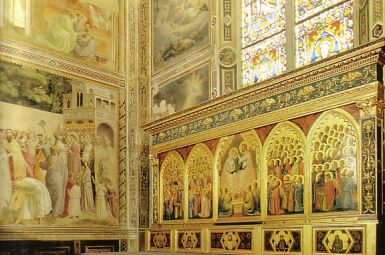
Slide 13: Florence, S. Croce, Bardi di Vernio Chapel
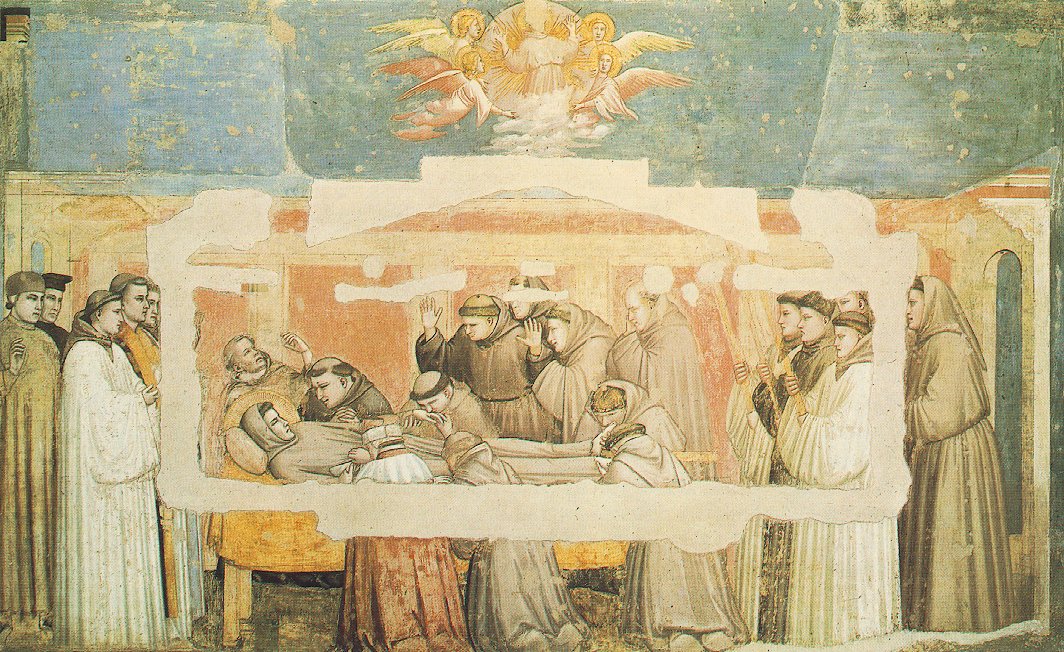
Giotto di Bondone, c. 1325, fresco, 280 x 450 cm, Cappella Bardi, Santa Croce, Florence
Death and Ascension of St Francis
In the Bardi Chapel, Giotto painted scenes from the life of St Francis for which the cycle at Assisi served as a model. The limited space in the chapel made it necessary to restrict the number of episodes represented. There is an admirable balance maintained between the studied precision of the composition and the eloquent expression of grief in the Death and Ascension of St Francis, where a small group of friars is gathered round the pale figure of the dead saint, expressing their profound sorrow with great dignity.
The Bardi Chapel was completely whitewashed in the eighteenth century, and tombs were built against its walls. The frescoes were uncovered in 1852, the missing parts filled in, and the whole surface repainted. When the repaint was removed in 1958-59, the original frescoes reappeared in fair condition, save for the unsightly gaps.
Mendicant churches of Sta Maria Novella and S. Croce (begun 1294; Bardi- and Peruzzi Chapels (Giotto wall paintings), Baroncelli Chapel (tomb, Taddeo Gaddi — wall paintings, Giotto altarpiece), Bardi di Vernio Chapel (tomb, wall paintings by Maso di Banco)
Slide 14: St-Germer-de-Fly, Lady Chapel, c. 1260
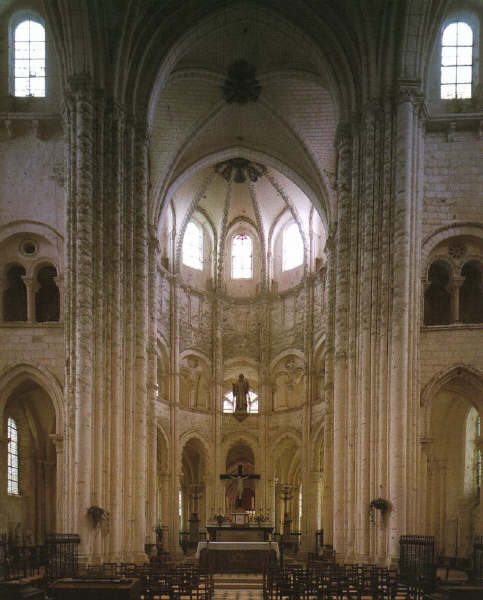
Slide 15: Bristol, St Augustine’s, begun 1298, Lady Chapel
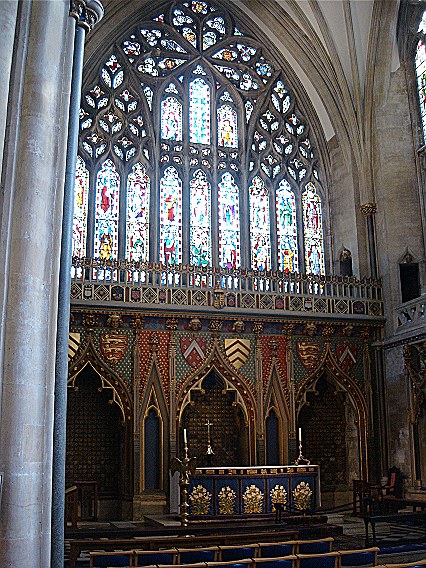
Slide 16: Wells, Lady Chapel
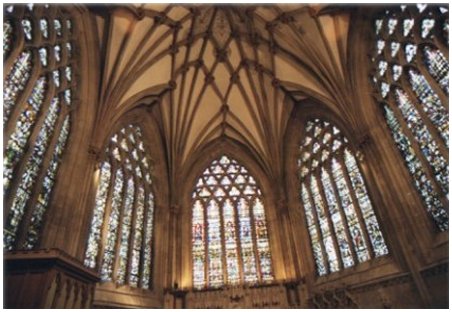
Some detail of the polygonal Lady Chapel. This section of the Cathedral was completed by 1326. The Chapel is dedicated to the Mother of Jesus. Retro-choir and ambulatory, begun 1323 by Thomas of Witney Ely, Lady Chapel, begun 1321
Palace Chapels
Slide 17: Reims, bishop’s palace chapel, 1230s
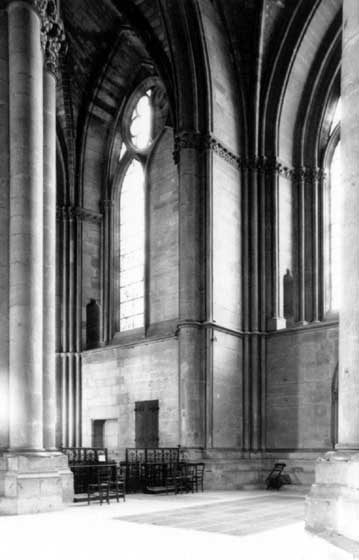
Slide 18: Paris, Ste-Chapelle
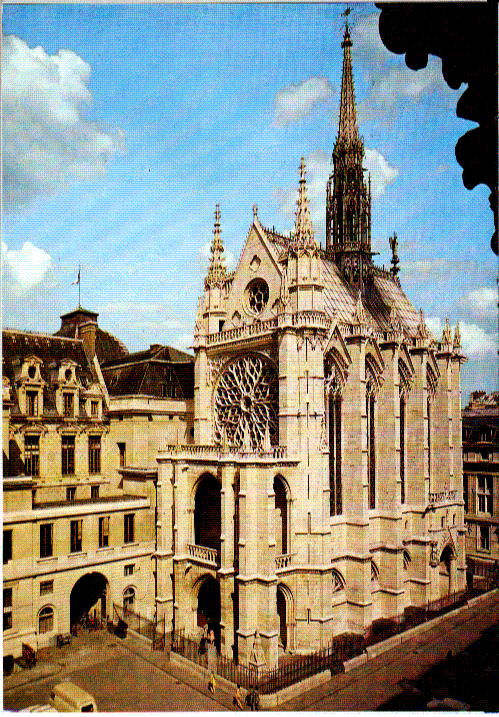
Part of the Palais de la Cite, 1241-8 for Louis IX, including sculpture,
Slide 19: Paris, Ste-Chapelle Grande Chasse, enamels, stained glass
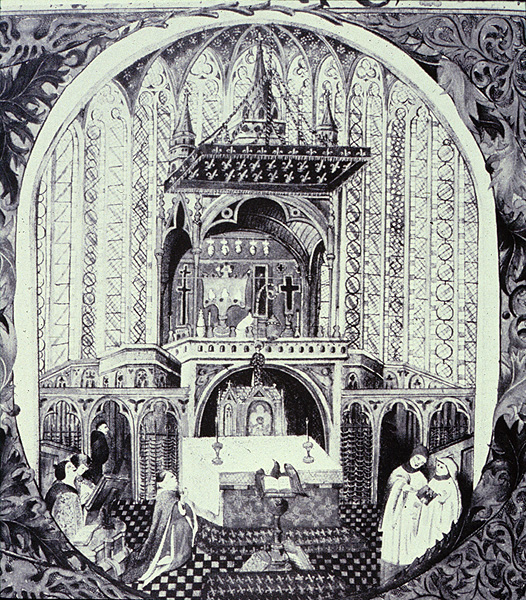
Slide 20: Wells, bishop’s palace chapel, 1280s for bishop Robert Burnell
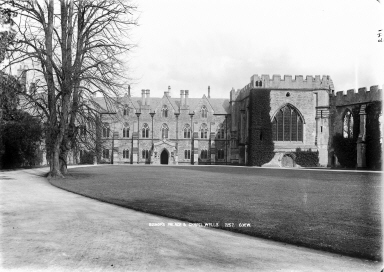
Slide 21: London, St Etheldreda’s Chapel, 1280s for John de Kirkeby, Bishop of Ely
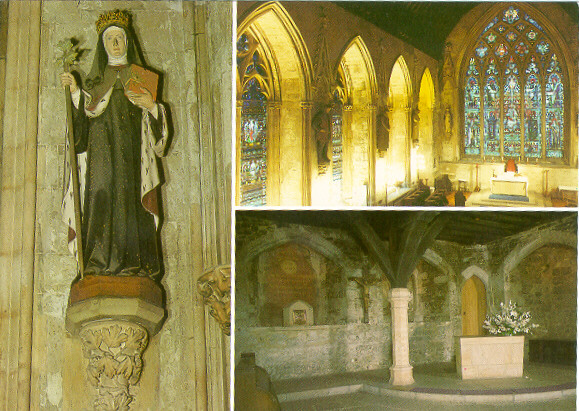
Slide 22: Westminster Palace, St Stephen’s Chapel, begun 1292
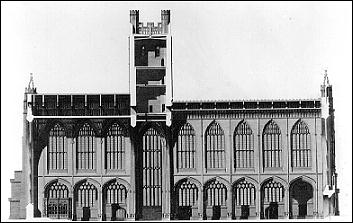
for Edward I by Michael of Canterbury, interior decoration of upper chapel c. 1350 for Edward III
Slide 23: Karlstein Castle, St Catherine’s, Lady and Holy cross Chapels, 1357-65
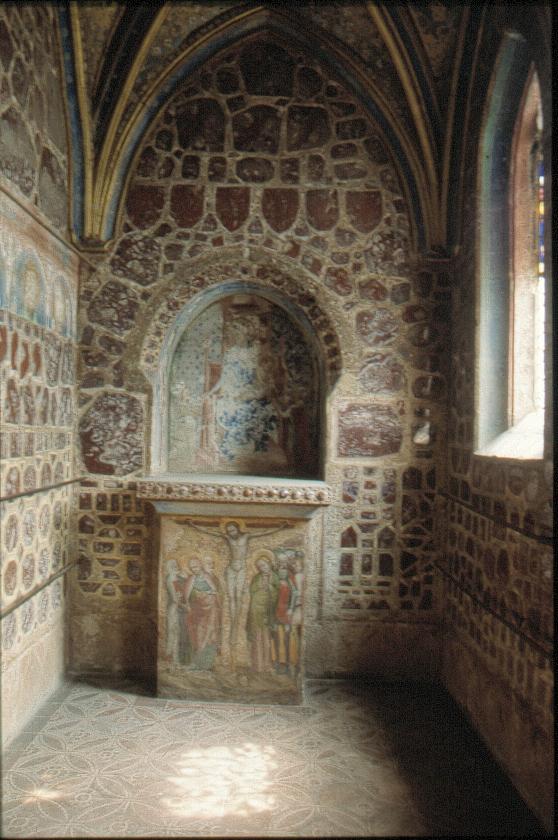
for Emperor Charles IV, with wall paintings by Master Theodoric and others, semi-precious stones, gold-and glass surfaces
Slide 24: Vincennes, Ste-Chapelle, founded 1379 by Charles V of France
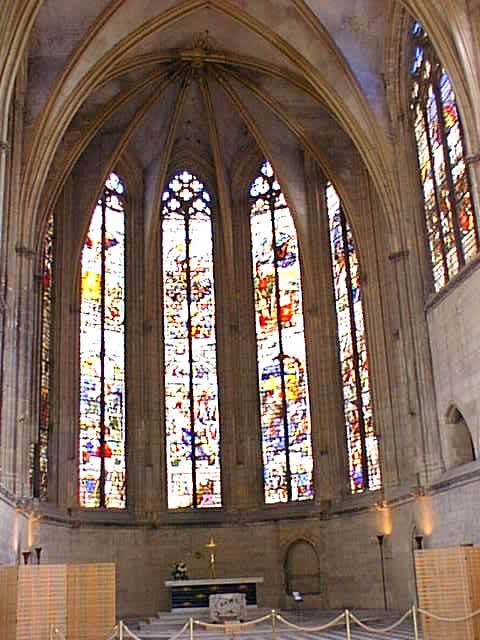
Funerary chapels
Slide 25: Padua, Scrovegni (Arena) Chapel, 1304/13
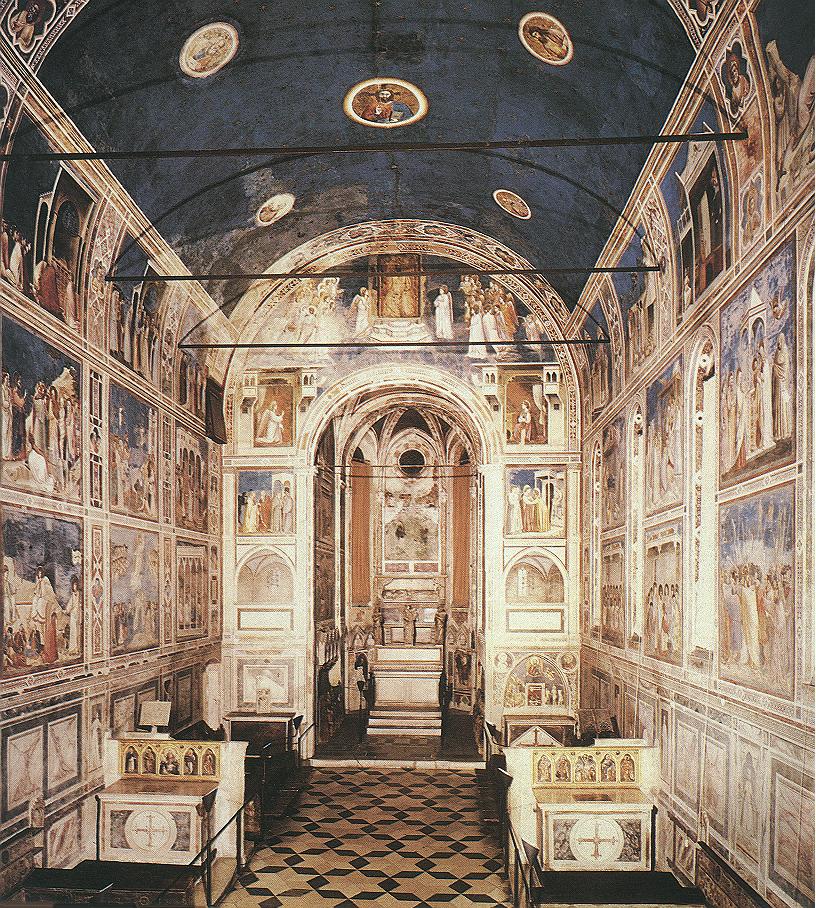
Slide 26: Tewkesbury, Chantry Chapel for Edward Despencer (d. 1375)
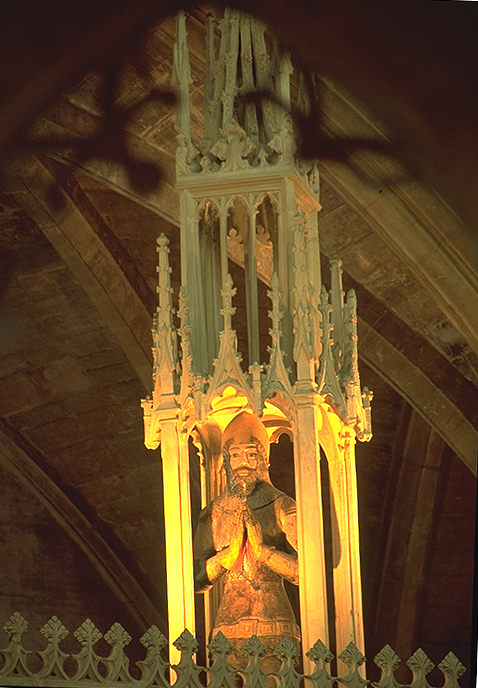
Slide 27: Winchester, chantry chapels for Bishop William of Wykeham (d. 1404)
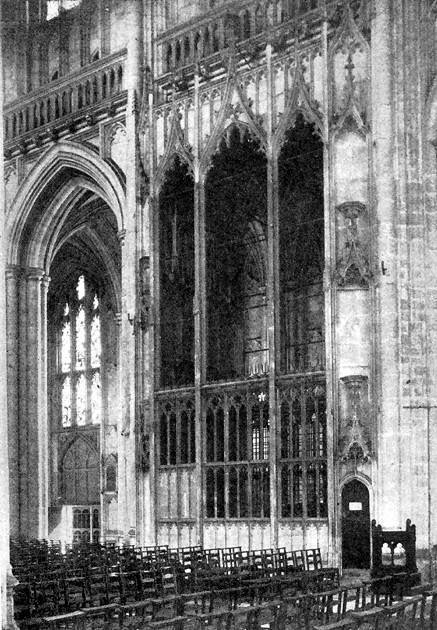
Slide 28: Winchester, chantry chapels for Cardinal Henry Beaufort (d. 1447)
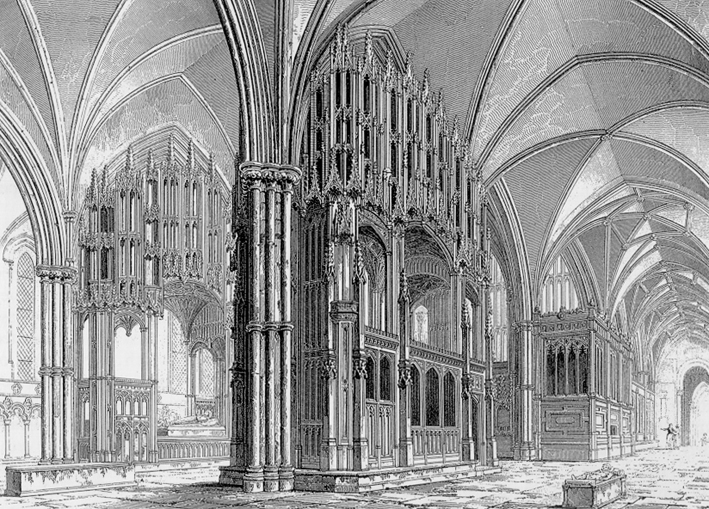
Slide 29: Champmol (Dijon), portal, former Charterhouse, founded 1384
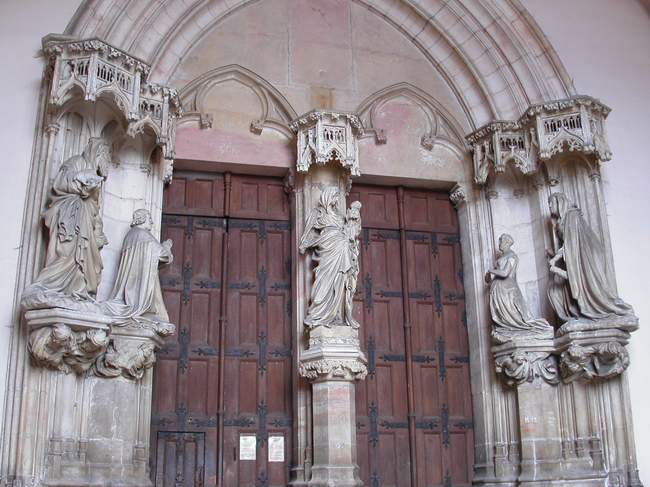
by Duke Philip the Bold of Burgundy, portal of church
Slide 30: Champmol (Dijon), tomb of Philip the Bold by Jean de Marville and Claus Sluter (1389/1406)
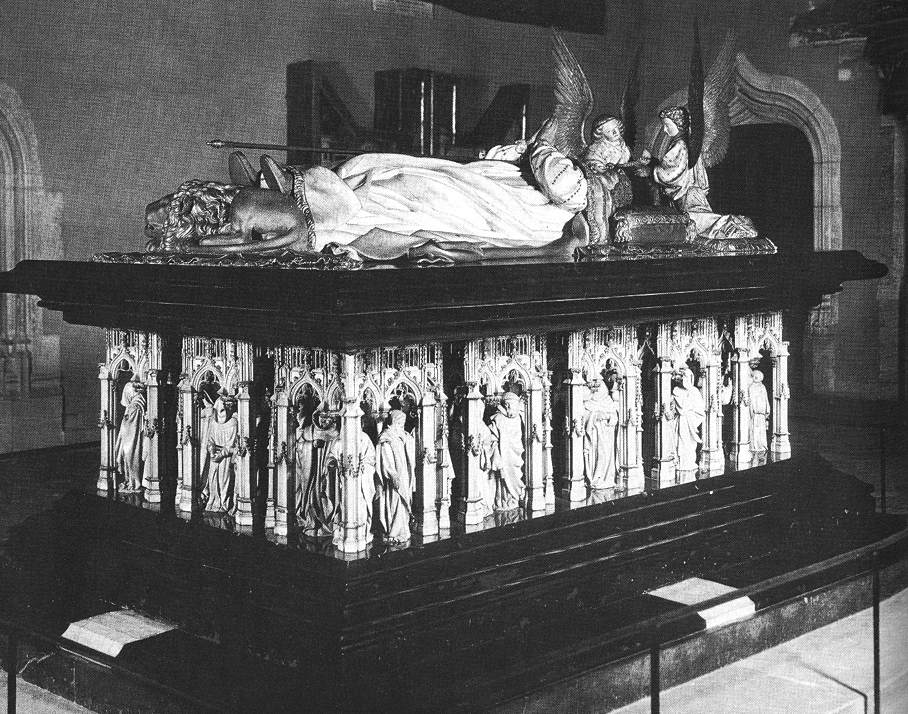
Slide 31: Bourges, former Ste-Chapelle, 1390s for Jean Duc de Berry
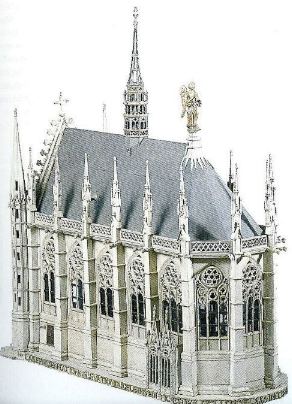
Slide 32: Bourges, tomb by Jean de Cambrai and priants (drawings by Holbein)
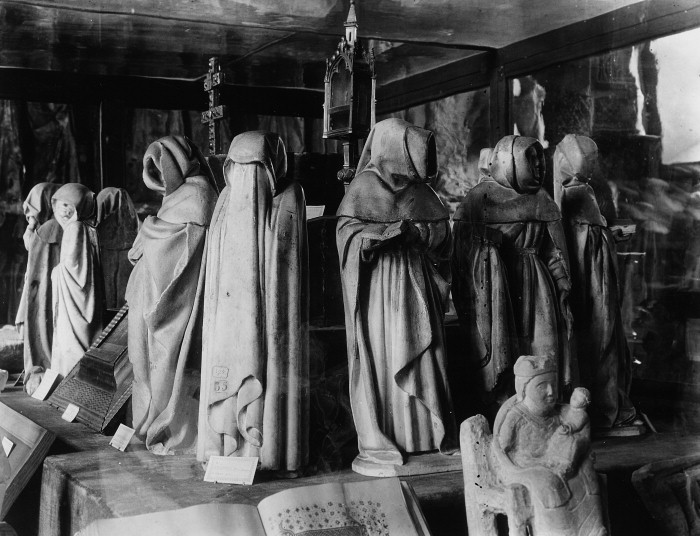
Mourners from the Tomb of Jean, Duc de Berry, Museum, Bourges, Cher, France
Jean de Cambrai more, circa 1416
17/03/2005
Andreas Puth
